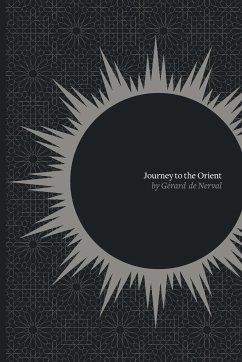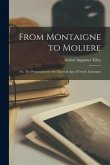More than just an account of his travels in Cairo, Beirut, and Constantinople in 1843, Gérard de Nerval's Journey to the Orient is a quest for the unknown. If his narrator seems credulous in his retelling of legends of the origins of the pyramids and the mysteries of the Druzes, it is with this purpose in mind. While the Orientalists of his day were confident of having, in the words of Edward Said, "grasped, appropriated, reduced, and codified" the Orient, Nerval's Orient remains elusive, impossible to grasp. Poignantly dramatized in the thematic centerpieces of the tales of the Queen of Sheba and the Caliph Hakim, what takes shape in this visionary travelogue, as the author's hopes are alternately disappointed and rapturously renewed, is the story of the artist's search for the ideal.
Hinweis: Dieser Artikel kann nur an eine deutsche Lieferadresse ausgeliefert werden.
Hinweis: Dieser Artikel kann nur an eine deutsche Lieferadresse ausgeliefert werden.




![A Letter to the Solicitor General on the Seizure of Papers [microform] A Letter to the Solicitor General on the Seizure of Papers [microform]](https://bilder.buecher.de/produkte/66/66186/66186043m.jpg)


![Letter of the Right Reverend John Francis De La Marche, Bishop of Leon [microform]: Addressed to the French Clergyman Refugees in England, Translated Letter of the Right Reverend John Francis De La Marche, Bishop of Leon [microform]: Addressed to the French Clergyman Refugees in England, Translated](https://bilder.buecher.de/produkte/65/65572/65572471m.jpg)
